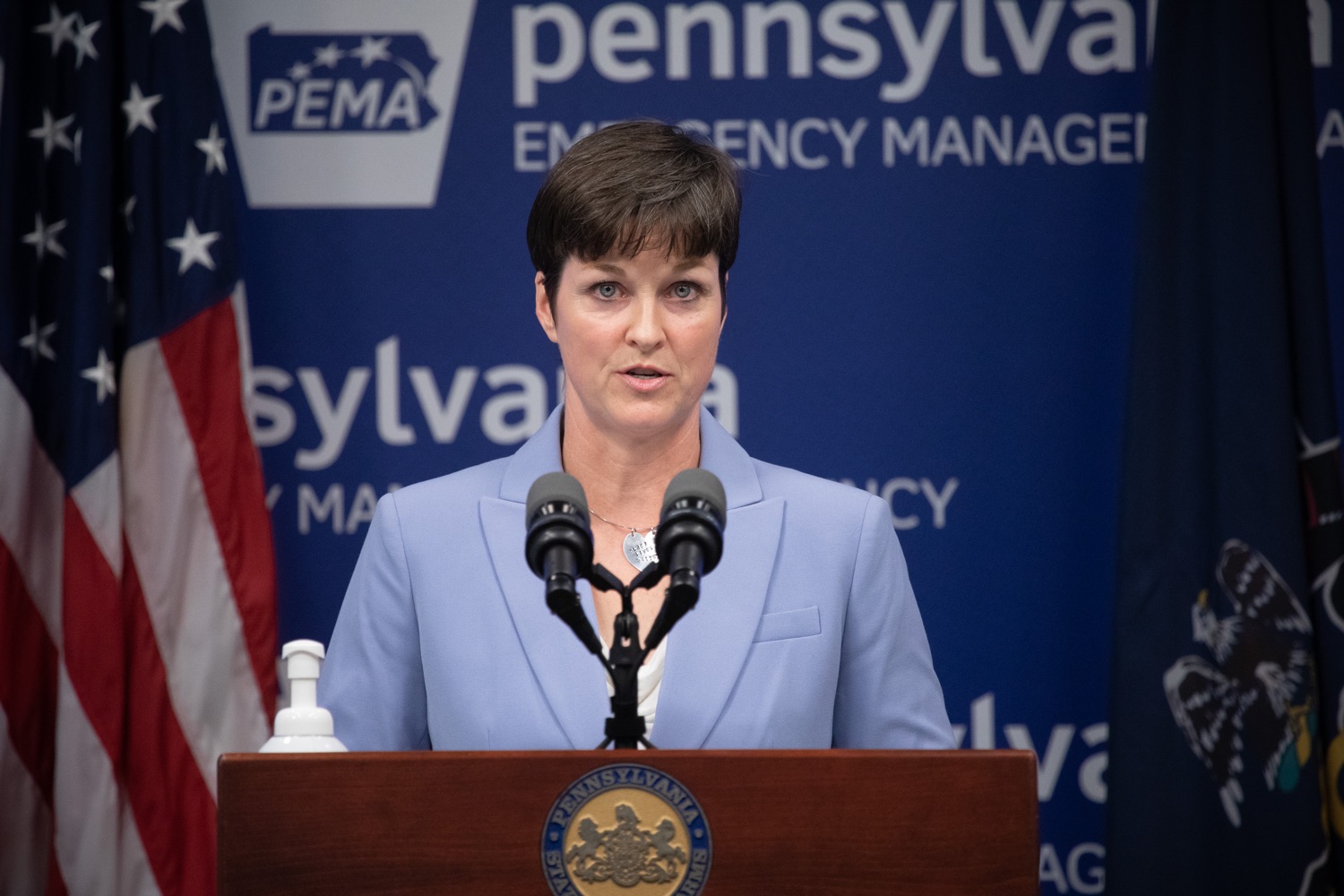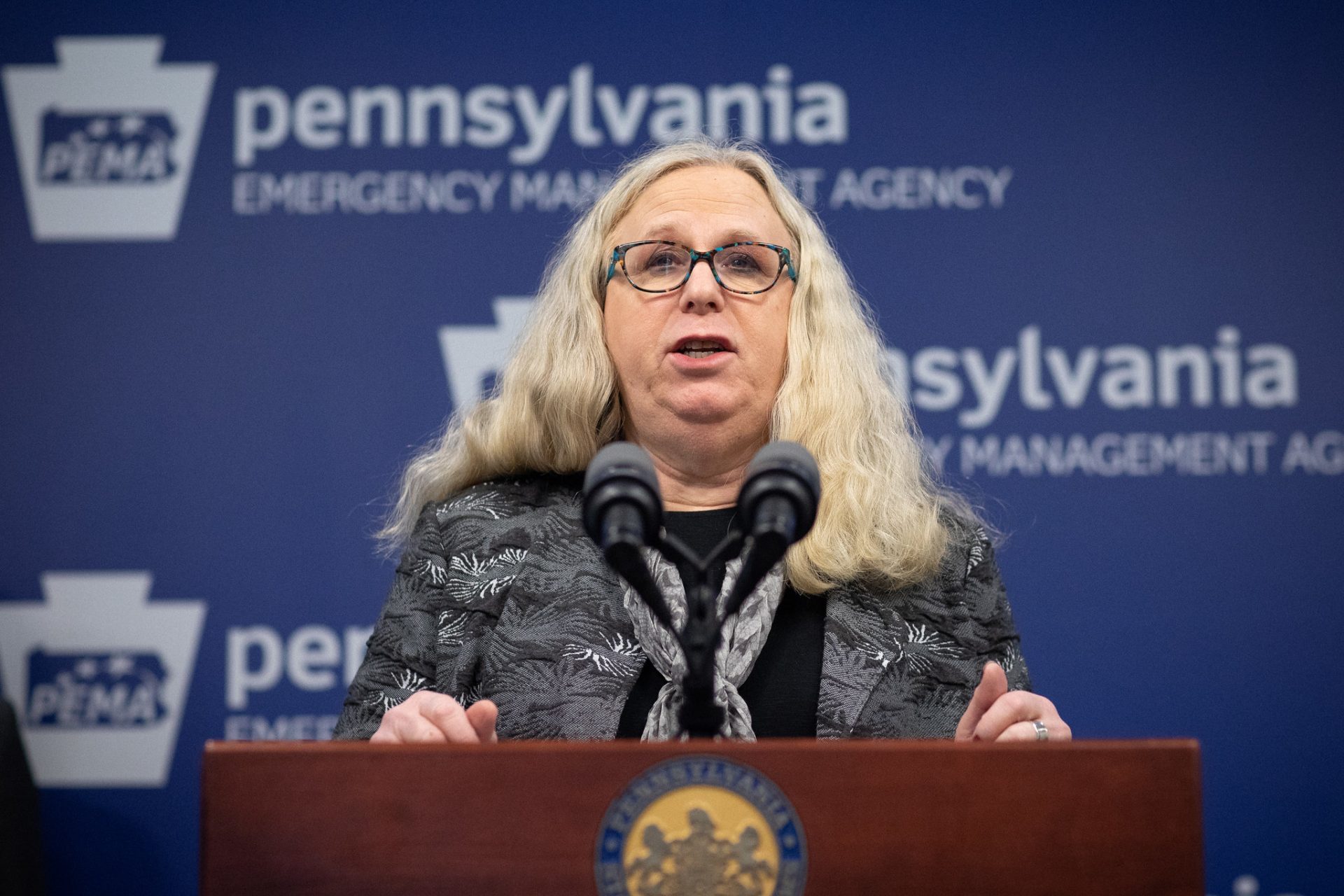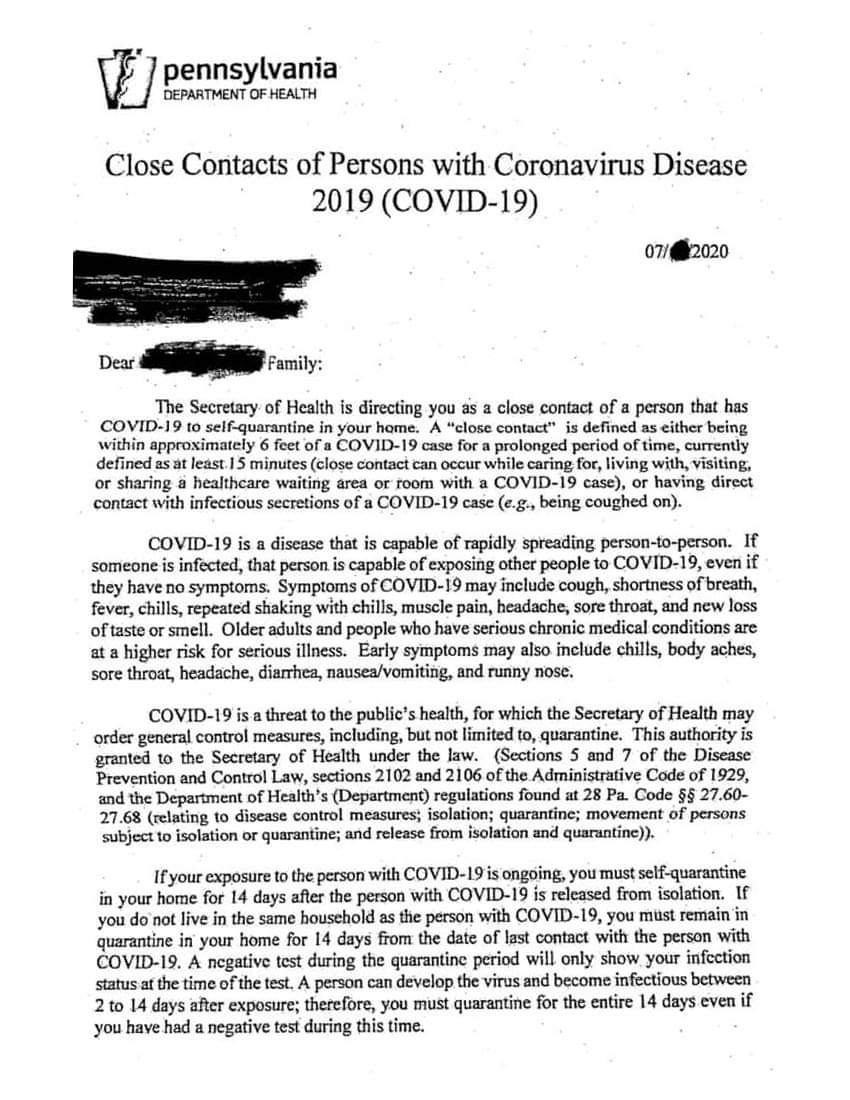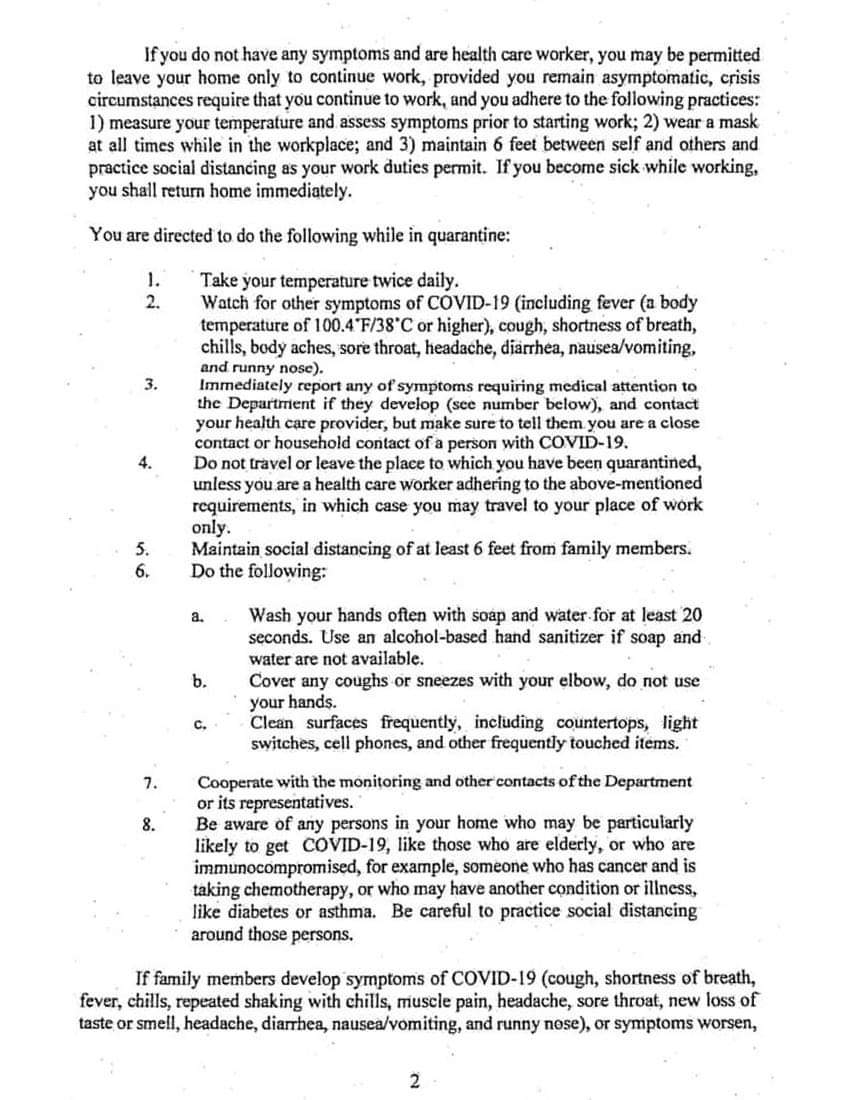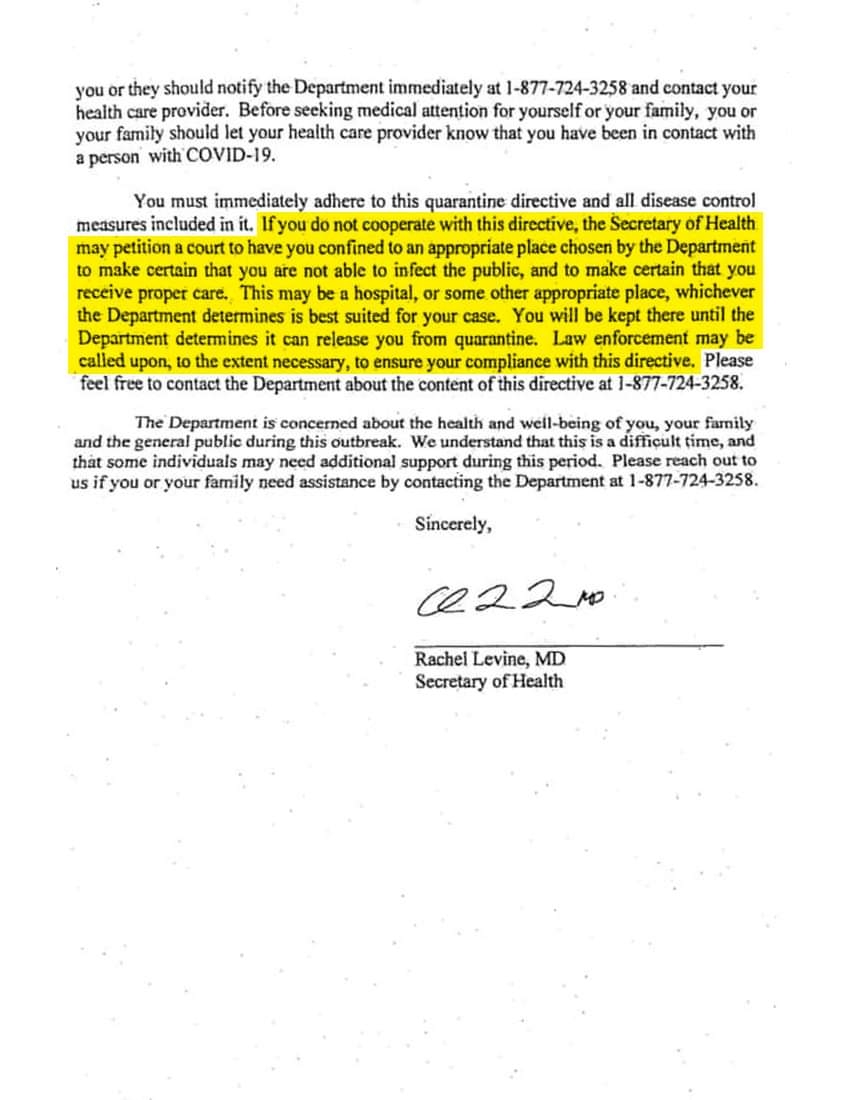Nineteen (19) new cases added Sunday and Monday in Lycoming County now at 1,014 cases, no new deaths, 32 total deaths, with 16,244 negatives according to DOH report.
Department of Health Provides Update on COVID-19:
3,969 Two-Day Positives Bring Statewide Total to 211,996
Pennsylvanians Urged to Download COVID Alert PA App
Harrisburg, PA – The Pennsylvania Department of Health today confirmed as of 12:00 a.m., November 2, that there were 2,060 new cases, in addition to 1,909 new cases reported Sunday, November 1 for a two-day total of 3,969 additional positive cases of COVID-19, bringing the statewide total to 211,996. Daily increases are now the highest they have ever been since the start of the pandemic.
The most accurate daily data is available on the website, with archived data also available.
The number of tests administered within the last 7 days between October 26 and November 1 is 257,836 with 15,907 positive cases. There were 35,182 test results reported to the department through 10 p.m., October 31 and 25,395 test results reported to the department through 10 p.m., November 1.
There were five new deaths reported Sunday, November 1, and six new deaths reported for Monday, November 2 for a total of 8,823 deaths attributed to COVID-19. County-specific information and a statewide map are available on the COVID-19 Data Dashboard.
Mask-wearing is required in all businesses and whenever leaving home. Consistent mask-wearing is critical to preventing the spread of COVID-19.
There are 3,644 individuals who have a positive viral antigen test and are considered probable cases and 647 individuals who have a positive serology test and either COVID-19 symptoms or a high-risk exposure.
There are 2,338,664 individuals who have tested negative to date. Of those who have tested positive to date the age breakdown is as follows:
- Approximately 1% are ages 0-4;
- Approximately 2% are ages 5-12;
- Approximately 5% are ages 13-18;
- Nearly 14% are ages 19-24;
- Nearly 36% are ages 25-49;
- Approximately 21% are ages 50-64; and
- Nearly 21% are ages 65 or older.
Most of the patients hospitalized are ages 65 or older, and most of the deaths have occurred in patients 65 or older. More data is available here.
The department has seen significant increases in the number of COVID-19 cases among younger age groups, particularly 19 to 24-year-olds. An alert was sent to healthcare providers about the changing COVID-19 case demographics. Increases among 19 to 24-year-olds from April through the end of October are available below:
- NC – Approximately 7 percent of cases in April to approximately 28 percent of cases in October;
- NE – 6 percent of cases in April to approximately 16 percent of cases in October;
- SE – Nearly 5 percent of cases in April to nearly 14 percent of cases in October;
- SW – Approximately 5 percent of cases in April to nearly 12 percent of cases in October;
- NW – Nearly 7 percent of cases in April to approximately 14 percent of cases in October; and
- SC – Approximately 7 percent of cases in April to approximately 12 percent of cases in October.
In nursing and personal care homes, there are 26,373 resident cases of COVID-19, and 5,691 cases among employees, for a total of 32,064 at 1,078 distinct facilities in 63 counties. Out of our total deaths, 5,810 have occurred in residents from nursing or personal care facilities. A county breakdown can be found here.
Approximately 12,527 of our total cases are among health care workers.
Statewide – The Wolf Administration has since noon, Nov. 1:
The Wolf Administration stresses the role Pennsylvanians play in helping to reduce the spread of COVID-19:
- Wash your hands with soap and water for at least 20 seconds or use hand sanitizer if soap and water are not available.
- Cover any coughs or sneezes with your elbow, not your hands.
- Clean surfaces frequently.
- Stay home to avoid spreading COVID-19, especially if you are unwell.
- If you must go out, you are required to wear a mask when in a business or where it is difficult to maintain proper social distancing.
- Download the COVID Alert PA app and make your phone part of the fight. The free app can be found in the Google Play Store and the Apple App Store by searching for “covid alert pa”.
Updated Coronavirus Links: Press Releases, State Lab Photos, Graphics
- Daily COVID-19 Report
- Press releases regarding coronavirus
- Latest information on the coronavirus
- Photos of the state’s lab in Exton (for download and use)
- Coronavirus and preparedness graphics (located at the bottom of the page)
- Community preparedness and procedures materials
All Pennsylvania residents are encouraged to sign up for AlertPA, a text notification system for health, weather, and other important alerts like COVID-19 updates from commonwealth agencies. Residents can sign up online at www.ready.pa.gov/BeInformed/Signup-For-Alerts.

